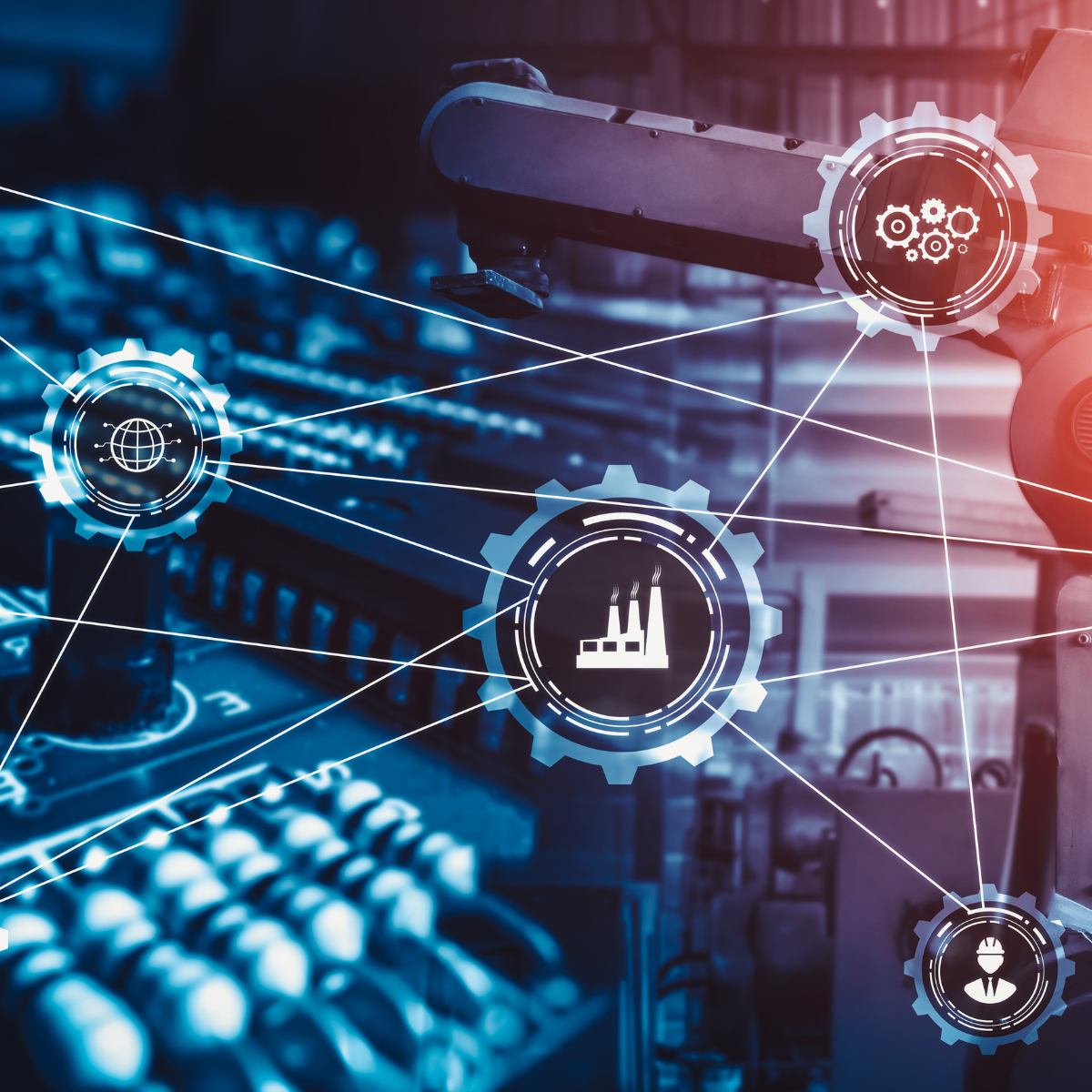How is Industry 4.0 disrupting the European manufacturing ecosystem?

The Industrial Revolution has been changing over the centuries with faster and faster technological innovations. Starting from the First Industrial Revolution (mechanization through water and steam power) to the mass production and assembly lines using electricity in the Second, the Fourth Industrial Revolution continued on what was started in the Third with the adoption of computers and automation and enhanced it with smart and autonomous systems fueled by data and machine learning.
What is Industry 4.0?
Fourth Industrial Revolution is characterised by the application of information and communication technologies to industry and is also known as “Industry 4.0“. Nowadays, Industry 4.0 is used for creating a smart factory which refers to the integration of advanced technologies, such as the Internet of Things (IoT), artificial intelligence (AI), and big data analytics, into the manufacturing process.
Different aspects of the Industry 4.0
- Cyber security: Cyber security is the practice of protecting systems, networks, and programs from digital attacks. These cyberattacks are usually aimed at assessing, changing, or destroying sensitive information; extorting money from users; or interrupting normal business processes.
- Augmented reality: Augmented reality is an interactive experience that combines the real world and computer-generated content.
- Big data: Big data primarily refers to data sets that are too large or complex to be dealt with by traditional data-processing application software.
- Autonomous robots: A robot that acts without recourse to human control.
- Additive manufacturing: 3D printing or additive manufacturing is the construction of a three-dimensional object from a CAD model or a digital 3D model.
- Simulation: A model that mimics the operation of an existing or proposed system, providing evidence for decision-making by being able to test different scenarios or process changes.
- System integration: The process of creating a complex information system that may include designing or building a customized architecture or application, integrating it with new or existing hardware, packaged and custom software, and communications.
- Cloud computing: Cloud computing is the framework that makes Industry 4.0 possible. Cloud service providers sell infrastructure, platforms, or software applications as a la carte services, allowing companies to provision resources and scale their operations as needed, while only paying for the resources they actually use.
- Internet of things: The Internet of Things (IoT) allows machines and devices to be linked over the internet so that they can exchange data and work together in a coordinated manner. This connectivity helps manufacturers save time, reduce waste byproducts, and decrease operating expenses. Sensors incorporated into tools and machinery, for example, can capture data related to temperature, speed, and wear so operators can shut down machines before they reach critical thresholds.
These advanced Industry 4.0 technologies bring completely new challenges in the relationship of man vs. machines with a more independent and agile production based on data and information, while their integration is leading to a transformation of the manufacturing industry, including in the European ecosystem.
Advantages of Industry 4.0
In the case of the Fourth Industrial Revolution, the advantages are evident: increased productivity, efficiency and quality in processes, greater safety for workers by reducing jobs in dangerous environments, enhanced decision making with data-based tools, improved competitiveness by developing customised products that satisfy consumers’ needs and so on.
4 trends that will change the manufacturing industry
Some of the ways in which Industry 4.0 is disrupting the European manufacturing ecosystem include:
- Increased automation: Industry 4.0 technologies are enabling increased automation in manufacturing processes, leading to more efficient and cost-effective production. This is likely to have an impact on the demand for certain types of jobs in the manufacturing sector.
- Improved supply chain management: Industry 4.0 technologies can provide real-time tracking and analysis of the supply chain, enabling manufacturers to optimize their operations and reduce waste.
- Enhanced product customization: Industry 4.0 technologies allow manufacturers to customize products to meet the specific needs of individual customers, leading to increased competitiveness and customer satisfaction.
- Greater sustainability: Industry 4.0 technologies can help manufacturers to optimize their operations, leading to reduced energy consumption and waste. This can help manufacturers to become more sustainable and reduce their environmental impact.
The inevitable impact
Industry 4.0 is revolutionizing the way companies manufacture, improve and distribute their products. All revolutions have benefits and drawbacks, challenges and opportunities, uncertainties and certainties. Industry 4.0 is likely to have a significant impact on the European manufacturing ecosystem, driving innovation and efficiency, and leading to both opportunities and challenges for manufacturers and workers.

